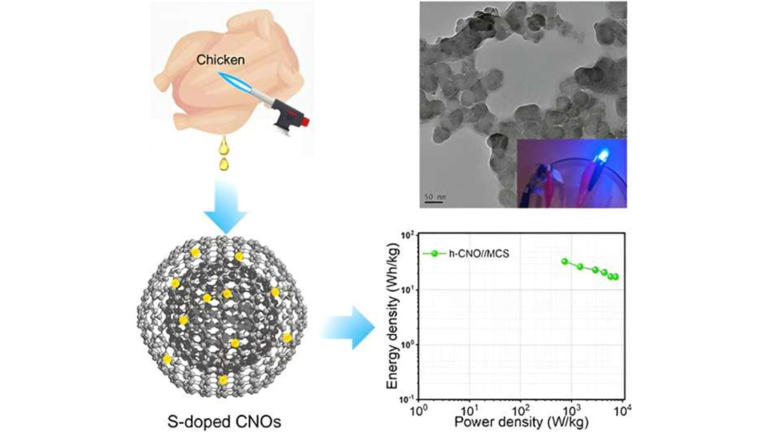Scientists Convert Chicken Fat into Energy Storage Devices
The global move towards sustainable, green energy has led to an increased demand for energy storage devices. Unfortunately, producing these devices often requires expensive and environmentally problematic materials. Would it be possible to produce alternative energy storage devices from things that are usually thrown away?
A Novel Approach: Chicken Fat for Supercapacitors
Researchers at the University of California, Riverside have developed a method to transform chicken fat into carbon-based electrodes for supercapacitors. Supercapacitors are energy storage devices that are known for their high power density and long cycle life. The researchers’ method involves heating chicken fat in the presence of a catalyst, which converts the fat into a porous carbon material. This carbon material is then used to create the electrodes for the supercapacitor.
The researchers found that the supercapacitors made from chicken fat electrodes exhibited excellent performance. The devices had a high energy density, which means they could store a lot of energy in a small space. They also had good power density, which means they could release energy quickly when needed.
Advantages of Using Chicken Fat
Using chicken fat to produce energy storage devices has several advantages. First, chicken fat is a waste product from the poultry industry, so it is readily available and inexpensive. Second, chicken fat is a renewable resource, so it does not contribute to the depletion of fossil fuels. Third, chicken fat is biodegradable, so it is environmentally friendly.
Potential Applications
The researchers believe that their new method could be used to produce energy storage devices for a variety of applications, including electric vehicles, portable electronics, and grid storage. They are currently working to scale up their production process and to test the long-term durability of their devices.
Conclusion
The development of energy storage devices from chicken fat is a promising step towards a more sustainable future. This new method could help to reduce our reliance on fossil fuels and to create a more environmentally friendly energy system. It is evidence that inspiration for scientific innovation can come from the most unexpected of places, even from the discarded fat of a fried chicken.

